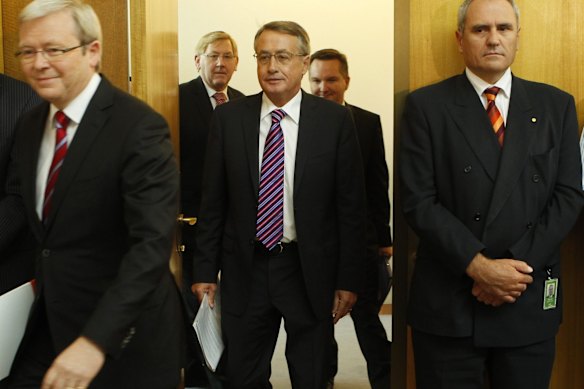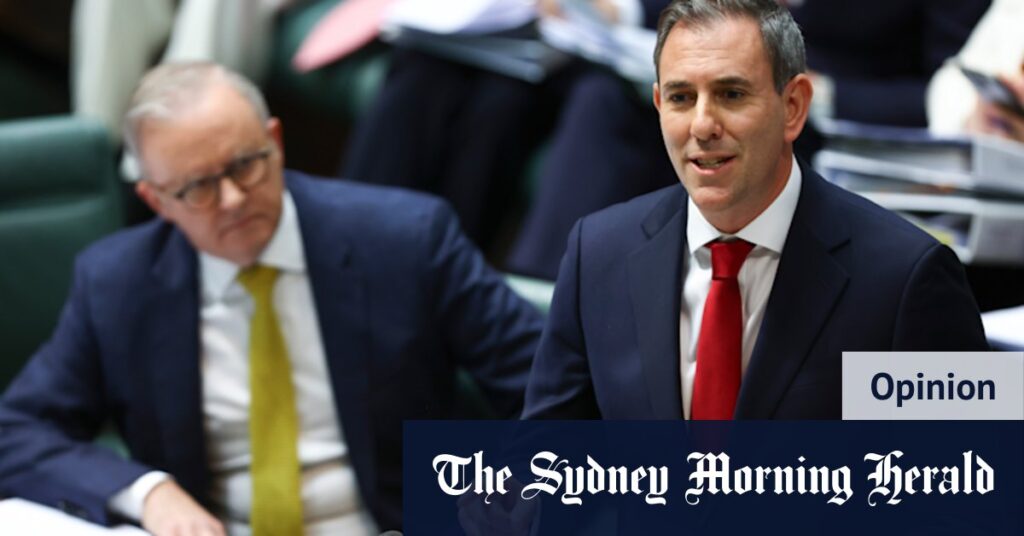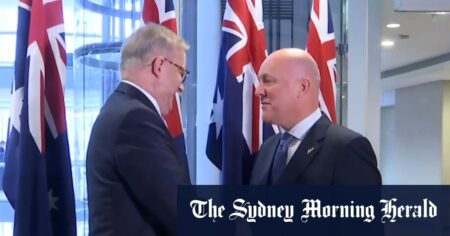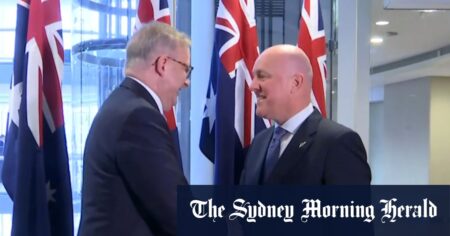For those who doubt the effect of these changes, go and ask the populations of our AUKUS partners, Britain and the United States, how their health and retirement systems are going.
The motivation behind the Accord was the labour movement’s resolve to never repeat the errors that had contributed to the swift downfall of the Whitlam government: chiefly the lack of co-ordination between the unions and the party, and the failure to understand the implications of rampant wage claims made as the economy was suffering a shock from oil prices.
In other words, the movement had to learn from its mistakes. In the 80 years since the end of World War II, the Labor Party has been elected to office from opposition only four times. Two of those governments – one headed by Gough Whitlam, the other by Kevin Rudd (twice) and Julia Gillard – went down the chute after just two terms. Both experienced sustained periods of internal chaos and failed to live up to their promise. The Hawke-Keating government is the standout success in the entire history of the ALP.
Anthony Albanese and Jim Chalmers are managing expectations of the roundtable.Credit: Dominic Lorrimer
It’s still early days for the Albanese government, which is now in what was for the Whitlam and Rudd-Gillard outfits the death zone of a second term, but its early defenestration looks unlikely. A record lower house majority and a slide in the fortunes of the Liberals and the Greens offer the prospect of a sustained incumbency.
The Albanese government is writing its own electoral script. The common experience of new governments from the early 1980s was that they were elected with a substantial majority that was reduced at the next election. Under Albanese, it has worked the other way around, with Labor just getting over the line in 2022 and then securing a landslide second time up. Right now, it is governing from an incredibly strong position.
How could the government blow it? By not seizing the opportunity it’s been given by the 8,553,231 Australians who voted for it. Those voters, who represented 55.2 per cent of the national electorate, want the country’s problems fixed by the government.
The extent of those problems has been demonstrated by the evolution of the roundtable, which began six months ago as an idea for a forum to find ways to kickstart productivity growth. It was not to be a summit that would produce a binding communique. Instead, it would be looser and smaller, with invitees asked to come with ideas, a spirit of consensus and a sense of shared responsibility.
But as the lead-up to the roundtable has proceeded and the ambit proposals from stakeholders have dribbled out, it became more difficult to limit its remit to productivity. Fair enough, too, because the economic challenges are interconnected and go beyond that.
Loading
Quickly, to the government’s discomfort, a focus on tax emerged. In any event, in a period when the care economy – a sector in which productivity is naturally difficult to measure – is big and guaranteed to grow, and artificial intelligence is poised to revolutionise most aspects of work, what will become of the existing concept of productivity?
It follows that if a meeting convened by the national government has economic reform in its title, it needs to generate substantial results. The smartest thing the government can do will be to see the roundtable as an opportunity to expand its policy options, regardless of whether the industry groups or any other stakeholders play a spoiler role or not. If it tries to “manage” the outcome, it will be shooting itself in the foot and letting down the people who gave it power.
Chalmers, as a former staffer of Wayne Swan, treasurer in the Rudd and Gillard governments, will recall what happened to the 2010 Henry review of the tax system commissioned by the Rudd government. The review made 138 recommendations, only three of which the government took up. It was a political and policy disaster.

Then-Treasury secretary Ken Henry (right), prime minister Kevin Rudd and treasurer Wayne Swan in 2010. Credit: Glen McCurtayne
And having studied Paul Keating’s political career, Chalmers also knows about the ambitious and far-reaching tax changes Keating introduced in the Hawke government’s second term. At the 1984 election, Labor pledged to hold a tax summit if re-elected. After the summit in 1985, Keating cut the marginal tax rate from 60 to 49 per cent and introduced a tax on capital gains and fringe benefits, along with a range of other changes to such things as wholesale sales tax and the company tax rate.
Several measures, especially the fringe benefits tax, faced serious pushback from vested interests. The government had no direct mandate for those outcomes, but it pushed ahead and got them through. It was rewarded by voters for its courage, winning in 1987, 1990 and 1993.
The roundtable could turn out to be a bust, as some critics have predicted, but that shouldn’t matter. If it founders on the rock of self-interested pandering or head-in-the-sand behaviour, Albanese should say it was worth a try, thank the participants for coming, and then get on with doing big things anyway. There is an appetite for this in the community, especially among younger voters, who are getting the rough end of the economic pineapple.
Loading
A report this week found that house prices are 14 times the annual average wage. To let this continue would be unconscionable and a social catastrophe. The prime minister and treasurer are breathing rare air. They will never get a chance like this again. Then again, who’s to say they actually share any historically significant, politically risky ideas for the economy?
Postscript: What of my massive career-defining national scoop in 1983? Four paragraphs appeared in a late edition on a left-hand page deep inside the paper, with no byline. On the following Monday morning, I got a call from a senior colleague on the chief of staff’s desk, a decent bloke: “Mate, the other papers have got some of the details of this Labor-unions agreement that they’re voting on today. Have you seen it?”
Me: “[Pause] Yes, I got it exclusively on Friday morning and called you about it. I filed for the first. Don’t you remember?”
Him: “Oh, yes. That’s right, mate. Thanks. [Call terminated.]”
Seriously, in my experience, when you’re attracted to the notion of a media conspiracy, it’s generally safer to conclude there’s been a cock-up.
Cut through the noise of federal politics with news, views and expert analysis. Subscribers can sign up to our weekly Inside Politics newsletter.
Read the full article here

















